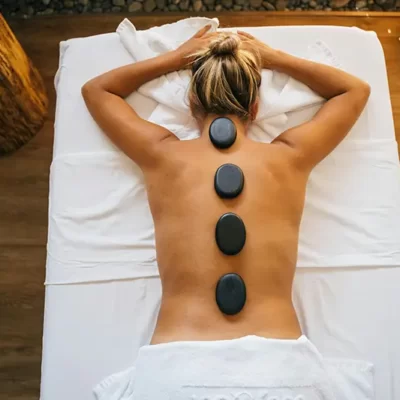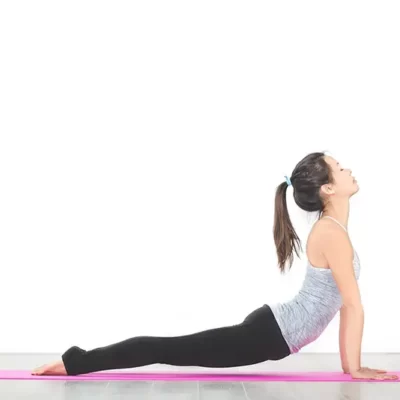Practical Advice for Managing Periods:
Introduction
Every month, millions of women around the world face their menstrual cycle, a biological reality accompanied by its share of discomforts and pains. Although it is a natural process, the symptoms that accompany it can significantly impact daily life. Fortunately, there are strategies and tips for managing these discomforts and improving menstrual well-being. This article aims to provide practical advice for managing menstruation daily and applicable at work, while traveling, or to relieve specific ailments such as headaches, with a focus on improving menstrual comfort.
Tips for Managing Menstrual Pain at Work
Pelvic pain is one of the most common and bothersome symptoms of menstruation, and it can be particularly disruptive in a professional environment. To cope, it is advisable to prioritize a comfortable and ergonomic sitting posture, which does not put additional pressure on the lower back and pelvis. Using a hot water bottle or a heating pad on the painful area can also provide significant relief. Moreover, it is crucial to incorporate short breaks throughout the day to stand up, walk, and stretch, thus releasing muscle tension and stimulating blood circulation.
Tips for Managing Menstrual Pain While Traveling
Traveling during menstruation can make managing symptoms more complex, but with a little preparation, it is entirely possible to minimize discomfort.
Tips for Relieving Menstrual Pain While Traveling
The key to a comfortable journey lies in preparation. Bring with you a first aid kit specially designed for your menstruation, containing not only your favorite menstrual hygiene products but also pain medication, a small portable hot water bottle, and any other item that provides you with comfort. Opt for loose and comfortable clothing that does not impede blood circulation and allows your body to breathe.
Tips for Relieving Menstrual Cramps on a Plane
Air travel requires special attention due to cabin pressurization and the lack of movement for long periods. Drinking plenty of water before and during the flight will help prevent dehydration, which can worsen menstrual symptoms. Taking time to stand up and walk down the aisle of the plane or do some simple stretches at your seat can also help relieve cramps and reduce discomfort.
Tips for Relieving Headaches During Menstruation
Headaches are another common symptom of the menstrual cycle, often exacerbated by hormonal fluctuations. To combat these headaches, it is crucial to stay hydrated, as dehydration can worsen them. Adopting relaxation techniques such as meditation or yoga can also help reduce the frequency and intensity of headaches, by decreasing stress and promoting a state of inner calm.
Tips for Improving Menstrual Comfort
For overall well-being during your menstruation, it is beneficial to adopt a healthy lifestyle. A balanced diet, rich in essential nutrients, can help combat fatigue and regulate menstrual symptoms. Regular physical activity, adapted to your energy level during this period, can also play a crucial role in improving mood and reducing pain. Gentle exercises like walking, yoga, or swimming are particularly recommended for their beneficial effects on the body and mind.
Conclusion
Menstruation should not be an obstacle to your daily well-being. By integrating these practical tips for managing menstruation daily into your routine, you can not only manage menstrual pain more effectively but also significantly improve your comfort and quality of life during this period. Remember, every woman is unique, and it may be necessary to experiment with different tips to find what works best for you.
FAQ
What are the best natural anti-inflammatories for menstrual pain?
Ginger and turmeric are renowned for their natural anti-inflammatory properties. Incorporating these spices into your diet or consuming them as teas can help reduce inflammation and relieve menstrual pain.
How long before my period should I start using a hot water bottle to prevent pain?
Using a hot water bottle can be beneficial from the onset of the first premenstrual signs. Starting a few days before the expected beginning of your period can help relax the muscles and prevent the intensity of cramps.
Are there specific exercises recommended for relieving menstrual pain?
Gentle exercises such as yoga, Pilates, or even walking can be particularly effective for relieving menstrual pain. These activities help relax the body and stimulate circulation, thereby reducing cramps and discomfort.
Is it recommended to change your diet during your period?
Yes, adopting a diet rich in fruits, vegetables, whole grains, and water can help alleviate menstrual symptoms. Avoiding caffeine, alcohol, and very salty or sugary foods can also help reduce water retention and bloating.
How can I manage painful periods without medication?
Besides using heat, relaxation techniques, and gentle exercises, other methods such as acupuncture or massage can be explored to manage pain without medication. The key is to find a combination of methods that work for you and incorporate them into your monthly routine.







